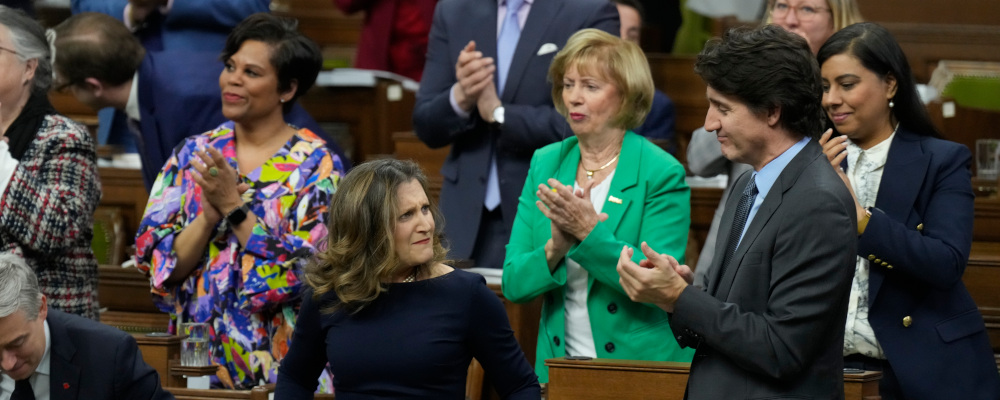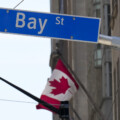Hub readers this week had discussions on how happy (and unhappy) Canadians are, baby boomers winning the generational war, and the federal budget and the potential impacts of increasing Canada’s capital gains taxes.
The goal of Hub Forum is to bring the impressive knowledge and experience of The Hub community to the fore and to foster open dialogue and the competition of differing ideas in a respectful and productive manner. Here are some of the most interesting comments from this past week.
Sign up for our daily Hub Forum email newsletter today.

How happy are you? Canadian satisfaction is deteriorating fast—particularly among youth
Monday, April 15, 2024
“Looking at the chart recording which countries have the happiest people, it is interesting to see that countries which put the welfare of people before profit are among the highest rating populations in the world. Happiness is more than a fat paycheque. A society in which the social needs of its people are put first will be a healthier, happier society.”
— A. Chezzi
“Feeling stuck is a huge detractor from happiness, and I think made worse when (at least to the degree the biggest problem is housing) it has come as a result of policy choices that favour older people rather than bad luck. The current situation has come on the tails of pandemic restrictions that (mostly justifiably) deprived everyone of a lot of choices, but in ways that arguably cost young people more and inarguably benefited them less.”
— Valerie
“Happiness, like beauty, is in the eye of the beholder. It is difficult for a young person that doesn’t have a high-paying government job to be happy to see half their pay go to taxes while the cost of living and raises for elected officials is out of control.”
— Kim Morton
Baby boomers have won the generational war. Was it worth young Canadians’ future?
Tuesday, April 16, 2024
“Sure, some [debt] was incurred to ward off the calamity of mass unemployment due to pandemic mitigations, but too much patch-work voter-pandering spending, inefficiency, ‘leakage,’ weak governance, and intergovernmental dueling has us on a downward spiral of standard-of-living. The young people are already living it.”
— Paul Attics
“What would be productive would be for new leaders to figure out how we can live with less while providing more housing, better health care, and cheaper education. I’m one boomer who would gladly pay extra taxes to fund this, and I think most would if they knew their money was going to these necessary improvements.”
— Peter Morgan

The Liberal’s big-government budget ups spending, raises taxes, and drops the pretences
Wednesday, April 17, 2024
“This budget looks like a scorched earth policy by a government that knows it is not getting reelected. Not only will the new Conservative government be too broke to advance any policies of their own to fix the damage, they will most likely be forced to raise taxes even more to pay for the structural deficits they inherited.”
— Kim Morton
“The criticism of capital gains exemptions is that people (evil capitalists) can buy stuff and make profit just by virtue of owning it. The counterargument is that a special tax status encourages investment in the economy. However owning a home doesn’t stimulate the economy in any significant manner, and some have lamented that too much capital is tied up in real estate while businesses are starved for investment.”
— Gord Edwards
‘Lazy,’ ‘imprudent,’ and ‘irresponsible’: The Hub Reacts to the 2024 federal budget
Thursday, April 18, 2024
“It’s no wonder Canada’s broke(n).”
— Ray Horwath
Slower growth, fewer jobs, a worse economy—the consequences of the capital gains tax shouldn’t be shrugged off
Friday, April 19, 2024
“Appallingly, the liberals are imposing the tax RETROACTIVELY on money, investments, property, and investments made years ago in accordance with the rules and choices we had. Gotcha! Working people are enraged.”
— John Williamson
“This tax change to the proportion of the highest-end earners of capital gains is a shift, nothing fundamentally has changed. Quibbling with the ‘dollar-is-a-dollar’ assertion because the time-value-of-money (which applies to all money, not just venture) is not relevant to the main but dubious claim that early-stage investing will drop significantly because of this tax shift. It reminds me of the claims that a new national or provincial holiday will crush businesses.”
— Paul Attics
Recommended for You

‘Another round of trying to pull capital from Canada’: The Roundtable on Trump’s latest tariff salvo

‘We knew something was coming’: Joseph Steinberg on how Trump is ramping up his latest tariff threats against Canada

Rudyard Griffiths and Sean Speer: Canada’s high-stakes standoff with Trump

Falice Chin: The ‘wild and weird’ Calgary Stampede



